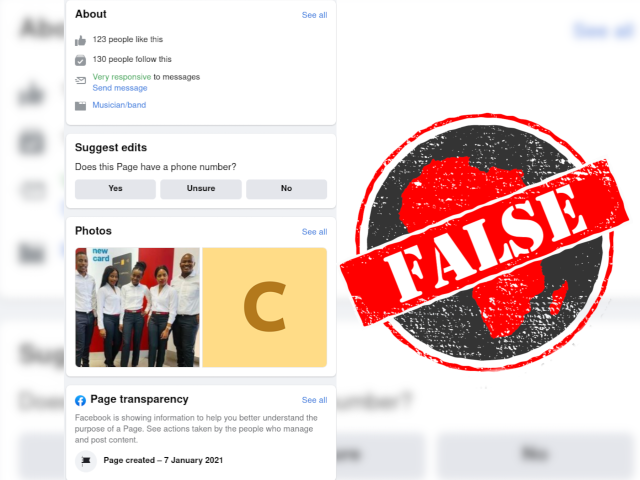IN SHORT: A Facebook page inviting users to apply for a househelp job at Lang’ata MP’s home is fake.
The Facebook page Jalang’o Kenya is inviting Kenyans to apply for a job as a domestic worker for a prominent politician.
The account uses the name and photo of Phelix Odiwuor, popularly known as Jalang’o. Odiwuor is the member of parliament for Lang’ata constituency in the capital Nairobi.
A post on the page, dated 18 August 2023, reads: "Nataka mfanyakazi wa nyumba. Salary 50k per month."
This translates to: “I am looking for a househelp.” The pay is about US$350.
The page is very active and has 813,000 followers.
But is this Facebook page really being run by the Lang’ata lawmaker? We checked.
Signs the page is fake
The page in question was created on 20 May 2018 under the name Jalang’o Kenya.
Between 2018 and 2022, the name of the page changed three times before returning to its original name. On 7 May 2022, the page name was changed to Shantel Kenya, and two weeks later it was changed back to Jalang'o Kenya.
Jalang’o Mwenyewe is Odiwuor’s official Facebook page. It was created on 12 October 2015 and has 1.4 million followers.
Posts on Odiwuor's official page show his whereabouts and commitments. However, there is no mention of a job offer.
We were unable to contact the lawmaker. However, when we texted the phone number given in the job ad, we received a screenshot of fixed football betting odds where the person had allegedly placed KSh2,500 and stood a chance of winning KSh224,210.
The concerning part is that we were asked to send KSh5,500 to access these odds.
It is unlikely that a politician would use his number in this way.
There are other red flags. For example, recent posts on the page provide links to gossip and sexual scandals.
All signs point to the page Jalang’o Kenya and its posts being fake, despite having such a large following. It is likely to be scamming Kenyans in the name of the legislator.
To help you protect yourself from online scams, check out Africa Check's guide to Facebook scams and how to spot them.
Republish our content for free
For publishers: what to do if your post is rated false
A fact-checker has rated your Facebook or Instagram post as “false”, “altered”, “partly false” or “missing context”. This could have serious consequences. What do you do?
Click on our guide for the steps you should follow.
Publishers guideAfrica Check teams up with Facebook
Africa Check is a partner in Meta's third-party fact-checking programme to help stop the spread of false information on social media.
The content we rate as “false” will be downgraded on Facebook and Instagram. This means fewer people will see it.
You can also help identify false information on Facebook. This guide explains how.



Add new comment